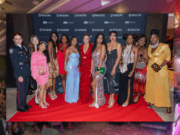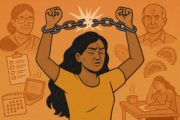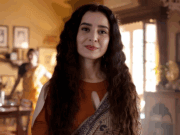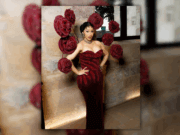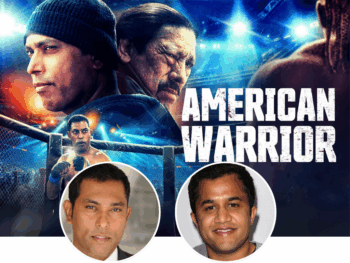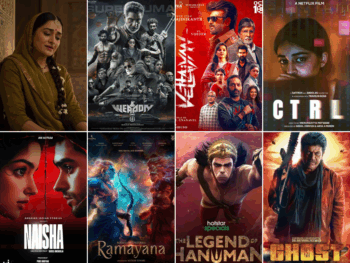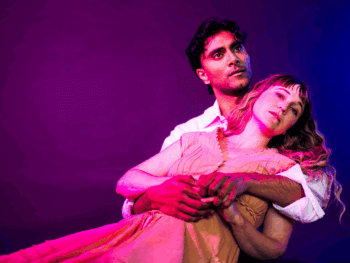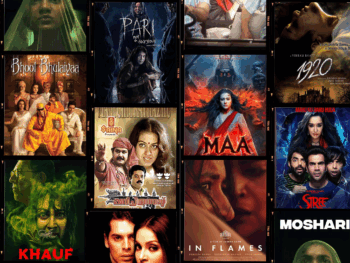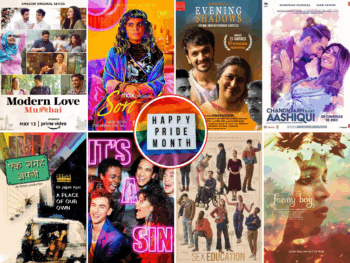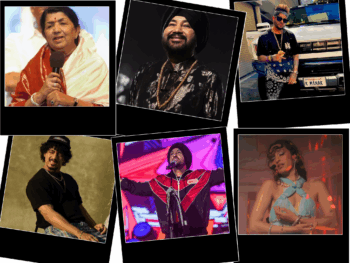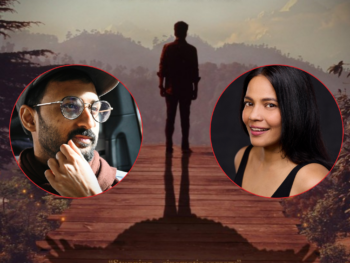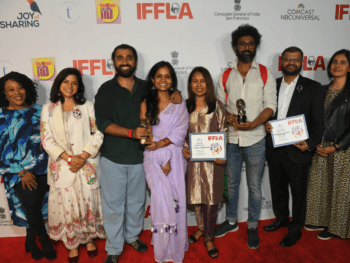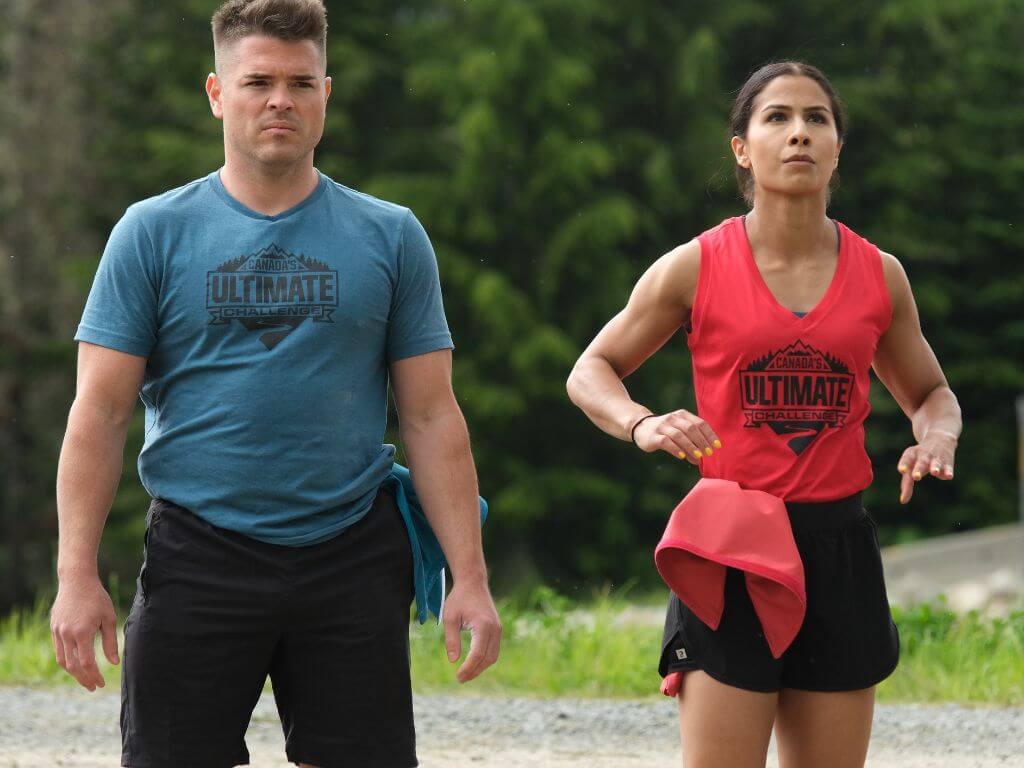
Dilpreet Bhattal Proved Her Mettle On CBC’s “Canada’s Ultimate Challenge”
Entertainment Apr 26, 2023
Bodybuilder Dilpreet Bhattal reflects on her Canada’s Ultimate Challenge experience, including what the CBC reality competition can teach us about communication, being coached by Canadian sports icon Donovan Bailey, the value of being stubborn and emerging stronger from defeat.
This past February saw the debut of a new CBC reality battle called Canada’s Ultimate Challenge that set out to turn the entire Great White North into “a giant obstacle course.” Running that course were an array of elite athletes from across the country, broken up into teams coached by Canadian sports legends like Clara Hughes, Waneek Horn-Miller and Donovan Bailey.
The show wrapped on April 6, with a win by former NFL champion Luke Willson’s Team Black. It was a hard-fought victory by those final four competitors, winnowed down from an initial field of 24 at the show’s debut. One of the athletes who didn’t make it to the finish line was bodybuilder and fitness coach Dilpreet Bhattal, eliminated earlier in the season after a gruelling rope-ladder challenge.
But the Winnipeg-born Bhattal is the province’s first-ever Punjabi woman to win the Miss Bikini Fitness competition, and someone who boldly went against the grain by pursuing her passion for fitness in the first place . . . in a community that had different expectations of a Punjabi woman. Which is to say, she’s never down-and-out for long.
Some time ago, Bhattal chatted with Anokhi Life about the highs and lows of her time on Canada’s Ultimate Challenge, inspiring other South Asian women to defy expectations and finding victory in defeat.
Matthew Currie: How did being on Canada’s Ultimate Challenge measure up to your expectations?
Dilpreet Bhattal: I had no idea what to expect, honestly — just going into it with eyes closed. And when you saw these competitions, and when you were in these competitions, I had to go places that I’ve never been before strength-wise — not only physically, but mentally as well. I really had to dig deep for not letting the team down. That was always it. You always have to complete your task, you always have to give your best, because the team is relying on you. It’s not just about you here.
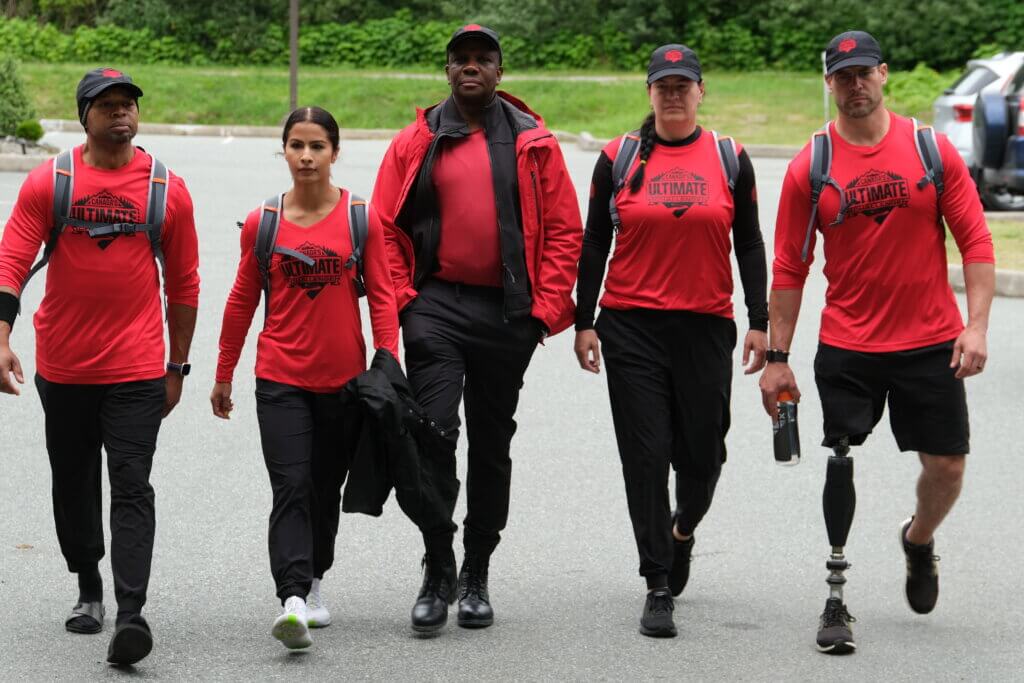
MC: Are you a viewer of reality competitions in your spare time? Is it one of your hobbies?
DB: No, I just go to the gym [laughs]. And then sometimes, if it’s summertime, you wanna go play some soccer outside, or someone’s like, “Hey, want to go tree-trekking?” But most of the tree-trekking and zip-lining happened after the show, because now I’m used to those adventurous things, and now I find myself looking for that thrill and those challenges.
MC: What was the most surprising part of this whole experience?
DB: The surprising part was the friendships that were created. I had no clue that I was going to get so attached to people . . . we have friendships all across Canada now, and we’ve also visited each other after the show in different cities. It’s incredible.
MC: The team aspect really adds an interesting wrinkle to the reality battle format . . .
DB: Huge. This show was very, very team-focused. And I knew that going into it, just with how the process of the audition went. Growing up, I played team sports, so I was prepped for that, knowing that this is teamwork, and this is not just about you. When it comes to you, this is about you bringing your best. Always. No matter what challenge comes up. I can’t speak for others on the show, but I think most of us understood that this was going to be about teamwork — lots of communication required if we wanted to succeed. I always say, “Communication is the key to success in any relationship in life.” And I think we really had to figure out how to communicate, as you see through the show [laughs]. Lots of ups and downs there.
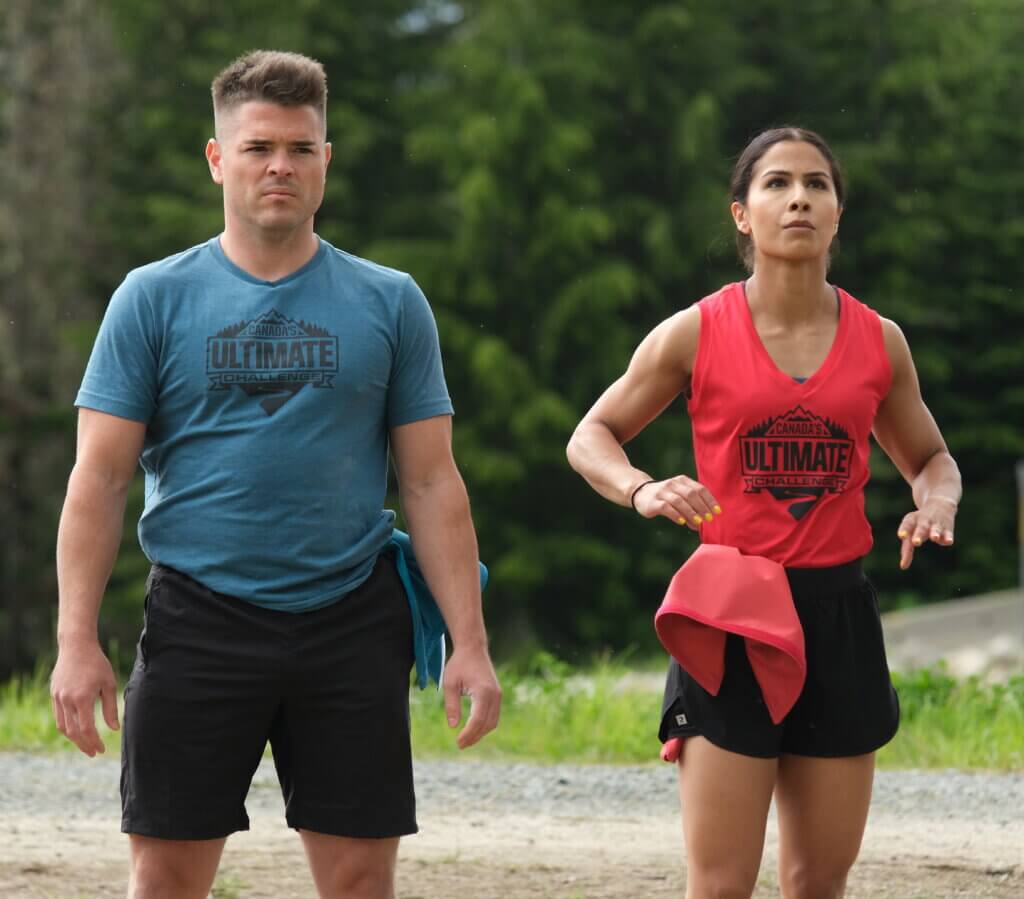
MC: Do you have any advice for future competitors?
DB: Be open-minded to what your coach is going to say. Because everyone has different coaching tactics, and you may not align with that, but you have to learn to adapt in those situations, and you have to learn to express yourself as well, and tell the coach what you need from them. And the coach also needs to communicate what they need from you. Be prepared for those conversations. If something’s on your mind, don’t hold it in. Express it with your team, let them know how you feel, because at the end of the day, that communication and that bond between you is what’s going to help you succeed throughout the competition. And just know, this is not just about you. It’s about the team.
MC: How valuable, and how surreal, was it to have these icons of Canadian sport leading your team, coaching you?
DB: It was very valuable, because with Coach Donovan, he would always ask each person, “OK, what’s your strength? And what do you find is not your strongest part? And be honest about it.” He would think about it and he would assess, and see who would be the best fit for each challenge. And we would let him know that, “If you think this is the best decision, we absolutely trust you, we respect you. You have so many years of experience when it comes to hard training, with being coached, when it comes to just being an incredible athlete who’s reached insane levels . . .” We had such faith in him. I think he made incredible decisions along the way of choosing who needs to go for which competitions. I think that was the same for other teams as well.
MC: You’ve been quite forthright that setting an example for your community is important to you.
DB: A huge part of going onto the show . . . I really wanted to represent the Punjabi community and South Asian community — especially our women. For me to get into the fitness world, there were lots of ups and downs. It was different, especially when you come from a small town . . . well, not a small town [laughs], but Winnipeg is a small city. I love that city. It’s just the lack of knowledge some years ago when it came to fitness, and no one was used to seeing a woman of the Punjabi culture getting into bodybuilding and fitness and muscle — that was just so different. I wanted to come on this show in hopes of inspiring women in our community to chase after things they think are different. You know, because of societal norms, we’ve been taught that, “This is what you should do: you go to university, you get a career, you get your salary-based job and you get married.” That’s been a huge focus. But as time is going on and social media is becoming more prominent, I think people are starting to become more open-minded, which is beautiful to see.
Even my own community supports me so much, and they’re so proud. I felt I just had to overcome some hurdles and educate as to, “It’s not just for guys to go into the gym and build muscle.” So I hope our community feels inspired to do something different, follow their passions, be spontaneous and not hold back. Trying new things in life will also increase your confidence.
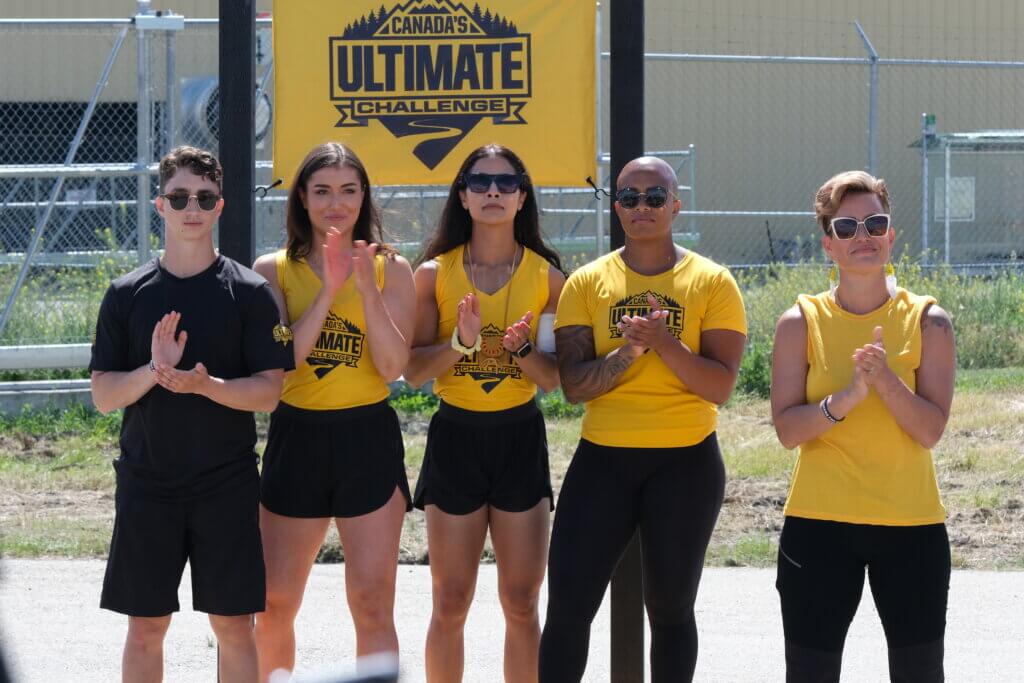
MC: What was it inside you that allowed you to first walk down that unconventional path of fitness and bodybuilding?
DB: I’m very stubborn. I don’t like to quit [laughs]. If I want to do something and someone tells me not to do it, it’s like, “Now I’m gonna do it to prove to you that I can do this.” And also just because, deep down, I knew I wasn’t doing anything wrong. I was doing things that were fuelling my passion. I just kept believing in it, and that small voice inside me just kept saying, “Keep pushing, keep pushing. Do what you want to do, because you’re so passionate about this.” Then just over time, I think from not giving up, and continuing to post on social media and educating about fitness, the community started to open up their minds. And they’re so proud now, and they’re so supportive; I see it on Facebook — they’re reposting things. I just knew that there was a lack of education and awareness, and it was going to take a little bit of time. I hoped they were going to come along, and they did [laughs].
MC: Now that you’ve had some distance from the elimination, do you see it in a different light than you did on the day?
DB: On the day, I was definitely more emotional, because you feel like you let the team down. It was completely up to me to get first or second for us to advance, and I couldn’t do that. It still hurts me to this day, don’t get me wrong; it’s months later, and I still think about it, and I try to think, “What could I have done differently?” But that’s life.
That was one of the hardest things I have done in my entire life, and when I spoke to other competitors — Vinny and Skylar, they said that their arms were hurting for days. And they are big dudes, you know? And they’re used to doing this kind of stuff. So for them to say that their arms were hurting for days allowed me to feel a little bit more relaxed — like, “OK that was a tough competition, and it wasn’t just me not performing at my best.” And if you saw the episode, you know that I definitely didn’t quit.
MC: As much as we all like to forget about our defeats, drive them from our minds, when you do have a disappointment like that, there’s value to be mined from evaluating it — turning a negative into a positive . . .
DB: Yeah, absolutely. I don’t regret my performance, because I did literally leave everything on the line. And after, I started to realize that my mindset that day . . . you know, I knew we were out, I didn’t have to finish, I could’ve stopped. But I didn’t. We needed top 2, and I knew that we weren’t getting top 2. I had to give myself a mental tough talk. I said, “You need to get your s*** together. No one’s going to help you right now. No one’s coming. You still have to finish this.” And I think that was still stuck in my head from being on Team Red [before moving to Team Yellow mid-season], because Coach Donovan always said, “You have to complete the task.” You’ve gotta finish . . .
Over time, I started to feel proud of myself that I had the option to quit but I didn’t. And this will go far with me in my own life, with my own personal challenges — that I was in a moment like that where I had the option to just stop, but I didn’t. I had to go to another place mentally just to finish. And it was of course physical, but it was a lot of mental grind and grit that required me to complete the challenge. I think that’s been a huge positive going forward in life, where I know that stuff comes up in life and things are challenging, and I’m still gonna tackle it. I’m never gonna back down and quit.
Season one of Canada’s Ultimate Challenge is now available to stream in full on CBC Gem.
Main Image Photo Credit: CBC
Matthew Currie
Author
A long-standing entertainment journalist, Currie is a graduate of the Professional Writing program at Toronto’s York University. He has spent the past number of years working as a freelancer for ANOKHI and for diverse publications such as Sharp, TV Week, CAA’s Westworld and BC Business. Currie ...





